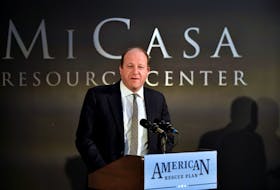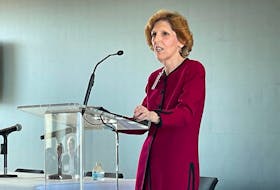For many years now, economic development officers (EDO) have been doing the unheralded yeoman’s work for the province’s economy.
They’re behind the scenes, but not behind the microphones.
And they’re just fine with that scenario, according to Ross Houlihan, president of the Economic Developers Association of Newfoundland and Labrador (EDANL).
“We want to see the province do well, we want to see the business person we’re helping do well, but on the whole, we’re quite happy to then push our elected officials up front,” he says.
“We’re just the doers”
But what do they do?
While a safe definition is to suggest they assist in developing opportunities in a variety of economic sectors, the true definition depends largely on the specific environment and sectors in which they operate.
“The challenge with our profession is that you could ask 50 people what economic development is and get 50 fairly different answers,” says Houlihan, EDO for the Town of Torbay.
An EDO, or economic development practitioner, employed by a municipality may deal only with new business development or the expansion of existing operations, serving as a contact point to field specialists.
In some cases, the job duties could be specifically around attracting foreign direct investment, mentoring or business network development.
“A lot of EDOs work in the field of just generating and seeking funding, not necessarily for their own projects, but for the planning department, the public works department or the recreation department.
“Sometimes you’re the ones putting the application in for funding, other times you’re the practitioner that’s reviewing that application and recommending approval for funding to go out.”
But EDOs are not limited to municipalities. They exist within the provincial and federal levels of government, and organizations such as startup incubators, regional tourism associations and chambers of commerce.
“All of them, in some way, shape or form, are trying to enhance and improve the provincial economy and if you’re doing that or working with an entrepreneur … it’s all economic development,” Houlihan says.
To be effective, that requires keeping abreast of what governments and funding agencies are saying and then building a case that the project the EDO is proposing makes sense.
It’s also imperative to know what resources are available when individuals or firms come seeking assistance.
“One of the most frustrating things as an EDO you can hear working at a municipality or a city is, ‘I have a business idea, but there’s no one out there to help me,’” Houlihan says. “I’m going grey because of that statement.
“It can actually be quite confusing when you see how much is actually out there.”
Using the business startup ecosystem model, Houlihan says EDANL hopes to create a sort of standardized one-stop-shop for the economic development needs to assist its members in knowing precisely what’s out there.
“So that our membership, regardless of whether they’ve been working as a practitioner for 15 years or 15 months, all have that clear understanding that these are the agencies that out there that might help you with funding, but they might also help an entrepreneur in your region.”
Into the limelight
Since EDOs are not interested in seeking the spotlight stemming from a success story, the EDANL itself is taking that on.
At next month’s conference and annual general meeting in Grand Falls-Windsor, the association will present its first economic development awards of excellence.
In addition to an economic developer of the year honour, EDANL will present two awards for community project and marketing, one in each category for a population of less than 3,000 and for a population of more than 3,000.
“Economic Development, in a way, is marketing,” says Houlihan. “You’re marketing your community, you’re marketing business opportunities, you’re marking tourism opportunities.”
The association is also using the conference and AGM to bolster its membership, which currently sits at 70 throughout the province.
“We know that there’s many, many more. We know that there’s probably that number alone of professionals working for the provincial government, either in the field of business attraction, business retention, tourism, all of these big economic drivers for the province.
“They have a fair staff complement at the provincial government that we feel as the board of EDANL would be fantastic to have as members.”
But they’re also looking to broaden the scope by attracting groups such as chambers of commerce and Community Business Development Association branches, along with economic development officers in St-Pierre and Miquelon and the Natuashish band council.
“Our membership for 2018 is free, so if you want to make use of that membership for the rest of the year, sign up as quickly as possible to get the most use out of it.”
To sign up, submit an award nomination, or learn more about the conference or the EDANL, visit edanl.ca.
[email protected]
Twitter: kennoliver79








